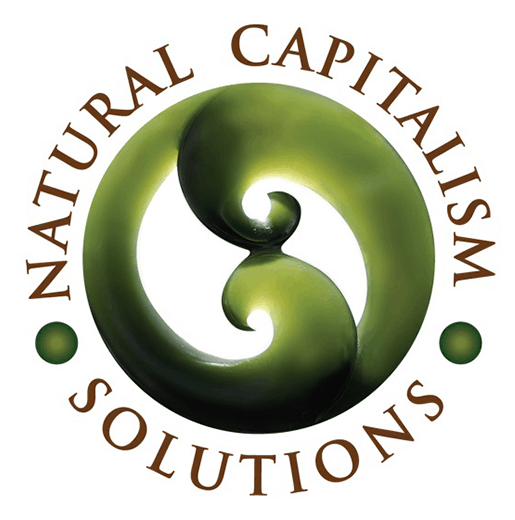[fusion_builder_container hundred_percent=”yes” overflow=”visible”][fusion_builder_row][fusion_builder_column type=”1_1″ background_position=”left top” background_color=”” border_size=”” border_color=”” border_style=”solid” spacing=”yes” background_image=”” background_repeat=”no-repeat” padding=”” margin_top=”0px” margin_bottom=”0px” class=”” id=”” animation_type=”” animation_speed=”0.3″ animation_direction=”left” hide_on_mobile=”no” center_content=”no” min_height=”none”]

Eco-Influence.com
(by Adam Hammes)
29 MAY 2013
Adam Hammes [/fusion_builder_column][fusion_builder_column type=”1_1″ background_position=”left top” background_color=”” border_size=”” border_color=”” border_style=”solid” spacing=”yes” background_image=”” background_repeat=”no-repeat” padding=”” margin_top=”0px” margin_bottom=”0px” class=”” id=”” animation_type=”” animation_speed=”0.3″ animation_direction=”left” hide_on_mobile=”no” center_content=”no” min_height=”none”][ I] caught Hunter Lovins on the phone recently for a quick (and poignant) interview about influence. She was frank and insightful — pulling no punches. It’s worth a listen! Hunter Lovins has been a leading author (14 books!) and promoter of sustainable development for over 30 years. She is president of Natural Capitalism Solutions, a 501(c)3 non-profit and the Chief Insurgent of the Madrone Project. She teaches sustainable business management at Bainbridge Graduate Institute in Seattle, Washington. She has taught at several universities, consulted for citizens’ groups, governments and corporations. She co-founded the Rocky Mountain Institute (RMI) which she led for 20 years. Named a “green business icon” by Newsweek, a millennium “Hero of the Planet” by Time Magazine, she has also received the Right Livelihood Award, and the Leadership in Business Award. Her two most recent books are The Way Out and Creating a Lean and Green Business System.
The Future of Education
AUDIO: Hunter Lovins_Madrone Project.mp3
[expand title=”Click for more on Hunter discussing the Madrone Project:”]
- “If she were going to do Presidio Graduate School’s MBA in Sustainable Management over again, would she do it the same?” No.
- It needs to be (1) short, (2) curated, and (3) video-based. A series of networked micro-courses.
- This online model annoys, scares, and disgusts professors and traditional educational institutions.
- Tuition is growing twice as fast as inflation. And student debt is larger than credit card and car loan debt – combined.
- Now in negotiations with a large education publishing house for a series that would be the equivalent of the sustainability portion of a “green” MBA.
- Students come to class having done as homework what was traditionally class. Class becomes an in-depth discussion and application of knowledge.
- The AACSB recently announced that all MBA programs will need a sustainability component to retain or earn accreditation.
- Many universities are really defensive about this mental model of education.
- Hunter spoke at Bradley University in Peoria, Illinois where the head of the MBA program was aware of the AACSC requirement and loved the idea saying, “We don’t have the sustainability experience on staff. Either we have to hire a bunch of faculty… or we just go with this.”
- Hunter gave the keynote at AASHE and got reamed by educators saying, “But what about the 2 A.M. bull sessions in the dorm?”
[/expand]
We Have Enough Science
AUDIO: Hunter Lovins_Enough Science.mp3
[expand title=”Click for more on Hunter discussing the task of our generation”]
- “We have all of the technologies that we need to solve all of the problems facing the planet. What we need is:
- political will
- organized citizens demanding these types of solutions, and
- implementation of what we already know how to do.”
- Germany will be using 100% renewable energy by 2050 — mostly from solar. Not because they get more sunshine than California. Because they have good policy. And it has slowed their rise of utility rates.
- Click here to read the report titled Sustainability Pays that summarizes dozens of studies on how sustainability is better for business.
- We don’t have to argue about whether climate change is real. Assume it’s a hoax. Even if you are a profit-maximizing capitalist, if you understand the business case, you should do the exact same thing you would do if you were scared to death about climate change.
[/expand]
The science is bar talk. We can argue over drinks about whether the earth is getting hotter or cooler, and at what rate. But meanwhile, with our day jobs, let’s get on with solving the problems.
No One Changes Their Mind Because of a Fact
AUDIO: Hunter Lovins_Stories.mp3
[expand title=”Click for more on Hunter discussing what influences people”]
- “Unlike some people, I believe the 40% (that don’t believe in climate change) care just as deeply as we do. And it is our job to get better at talking to them.”
- The #1 mistake environmentalists still make today is — talking to people from where WE are at, instead of where THEY are at.
- First of all, ascertain what it is that the person to whom you are speaking cares most about.
- Then, frame your argument in terms that meet their concerns.
- A lot of right-wing conservatives care deeply about wild lands, the ability to go hunting and fishing… clean air for their children, a livable planet, a healthy economy.
- Environmentalists come off frequently as moralistic — “You’re doing something wrong, and it’s hurting what I care about.”
- A more effective route — “What is it that you care about? How can we work together to ensure that what you care about will be here for your grandchildren?”
Everything is your fault, if you’re any damn good.~ Ernest Hemingway
How much faster can we see change if 1,000,000 people understood this?
- “It may not take 1 Million. It may take only 1… saying it at the right time and in the right way.”
- Reaching out to people with whom we might disagree politically, in a caring way… is much more effective than how many numbers we have or precisely what the message is.
Most people don’t change their life because of a fact — a number, data, science. They change it because of something they care about. And our job is to help others understand that what they care about is threatened.
- Fixing these problems will also strengthen the economy, will strengthen local businesses, put money in our pockets, make us more resilient.
- Stories change people…
[/expand][/fusion_builder_column][/fusion_builder_row][/fusion_builder_container]

Leave a Reply